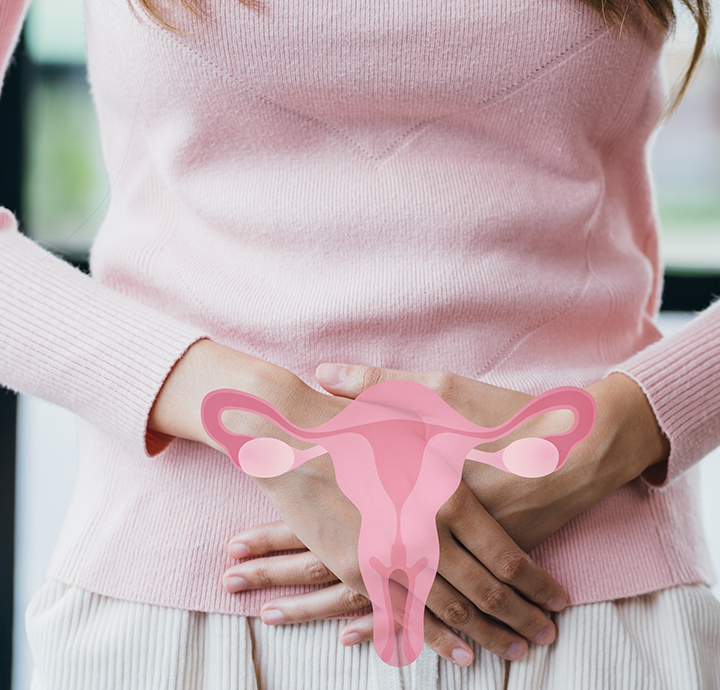
People who do not have enough mature eggs in their ovaries due to various reasons need to resort to different treatment methods. Obtaining quality eggs is one of the most important issues in IVF.
As a term, IVF "mature egg" refers to the specific eggs collected from the woman's ovarian reserve and ready for fertilization. In a normal ovulation cycle or in IVF treatment, mature eggs are removed from the ovaries after stimulation. In this treatment process, it may be necessary to apply applications to increase the chance of IVF no mature eggs.
Iin vitro fertizilation (IVF) has revolutionized the world of assisted reproductive technology, offering hope to individuals and couples striving to build their families. This cutting-edge procedure involves the manipulation of fertilized eggs, sperm and embryos to increase the chances of success in achieving pregnancy. Candidates should delve into various aspects of IVF treatment, including the different IVF cycles, egg retrieval, and other techniques like intracytoplasmic sperm injection. They should also know the importance of mature eggs, the health risks associated with IVF, and the possibility of conceiving twins or triplets before the process.
Mature eggs are the ones that are released from the ovaries in the female reproductive system every month and are fertilizable. Those in the metaphase II stage are defined as mature eggs, in other words, eggs that are ready for full fertilization. Pregnancy occurs in eggs in this group. Therefore, mature eggs are extremely important for pregnancy in women. The success of the type IVF treatment is also determined according to such variables.
For the formation of a mature egg, variables depending on the woman's age and other conditions may occur. They develops in the follicle inside the ovary. They travels along the fallopian tubes to increase the likelihood of fertilization. Waiting for the right time for egg retrieval is essential for the success of the treatment.
The problem of failure to obtain mature eggs in women is extremely important for reproductive health. This condition is generally associated with reproductive health problems. Symptoms differ accordingly. At the end of the process that occurs between 2 and 5 days of menstruation, mature eggs begin the process of re-formation.
Some of the symptoms that may be associated with the problem of not obtaining mature eggs that prevent healthy pregnancy are summarised as follows:
· Irregular and gradually disappearing menstrual cycle,
· Lack of regular ovulation,
· No pregnancy despite regular sexual intercourse (infertility),
· Ovulation pain during ovulation,
· Ovarian disorders such as polycystic ovary syndrome,
· Hormonal changes etc.
Mature eggs are needed for the embryo to form safely in the uterus. The development of such problems significantly complicates the reproductive process. It is essential to obtain mature eggs for a healthy pregnancy.
There may be many factors underlying the failure to obtain mature eggs. It is extremely important to determine these factors correctly and to apply appropriate treatments. These processes are important for the pregnancy process to start in a healthy way. Answers to questions such as what is egg maturity means in IVF will be effective in starting the right treatment applications.
There may be many different reasons why mature eggs cannot be obtained. The main source of this problem will need to be determined and treatments will need to be applied accordingly. In the treatment of obtaining mature eggs, infertility, that is, those who have infertility problems, are usually in the first place. Mature egg formation is extremely important for IVF egg collection to be performed in a healthy way. The following people are generally considered suitable for the treatments to be applied in order to obtain mature eggs:
· Detection of ovulation problems, which are common causes of infertility among women,
· The fallopian tubes are blocked or damaged,
· Problems in the intrauterine tissue such as endometriosis,
· Age-related reproductive problems,
· Recurrent miscarriages etc.
Treatment methods and treatment needs are different for each patient. In addition, since the medications and other processes used will vary, a special treatment process will need to be initiated for each patient. Correct diagnosis and treatment are extremely important issues in terms of treatment success in sensitive issues such as reproductive health.
The success rates in IVF treatment can be increased with the right techniques. In this context, patients will definitely need to have mature eggs. People who cannot have children are supported to have children with such treatments. While IVF offers hope to many, it's important to be aware of potential side effects and health risks associated with the treatment.
The treatment process in women who cannot obtain mature eggs varies according to many factors. The general health status of the patients, existing diseases, and other variables are among the issues that are effective in this case. In order to perform IVF egg collection, the treatment procedure will definitely need to be determined according to the patients.
Treatments to increase mature egg production are frequently applied in this context. These methods aim to provide ready eggs, it is aimed to overcome the infertility problem. The collected eggs need to mature in order to create a successful pregnancy. In this context, the following types of treatments are used:
· Use of drugs to increase ovulation,
· IVF treatments,
· Donor egg treatment etc.
Many methods to obtain mature eggs are used to support couples in the process of having a child. In this context, correct planning and procedure should be followed especially for IVF treatment.
The recovery process varies according to the treatments that will provide mature eggs in patients. Success rates and healing processes in treatments vary from patient to patient and according to the methods to be preferred. Different treatment methods can be used for each patient. The mature eggs in IVF process can be achieved.
As a result of the treatment, the aim will be to achieve a healthy pregnancy by obtaining mature eggs. Depending on the treatment procedure, physical recovery times also vary. If the treatment is successful, then patients can enter the pregnancy period. The pregnancy process requires a comprehensive follow-up, especially in the first 3 months defined as the first trimester. People think about how to get more mature eggs ivf. In general, the process differs for everyone.
In order to obtain a mature egg, drug therapies are sometimes used to increase ovulation and stimulate follicle growth. Drug treatments can also give fast results. In this context, the healing process may occur after the end of drug treatments. Depending on the answers to the question of why the mature egg is not fertilized, the treatment and recovery process varies from person to person. For a healthy and successful pregnancy, you can increase your chances of success in IVF treatment by choosing the expertise of Op. Dr. Nurettin Türktekin.



Ovarian cysts are fluid-filled sacs or vesicles seen inside the ovary. Normally, during each menstrual period, a cyst called a follicle, which carries the egg cell and can reach 3 cm in size, forms in the ovaries. Then this cyst cracks and the egg is released. In young girls with ovulation problems, normal or physiological follicle cysts that cannot rupture can grow every month and reach 5-10 cm, while small numbers of 0.5-1 cm in size, which we call polycystic ovaries, can be seen in series. Apart from these functional cysts, benign or malignant ovarian cysts can also be seen in all age groups.
Except for the most common functional ovarian cysts, cysts can be benign or malignant tumoral cysts. In addition, as a result of infection, abscess-shaped cysts may occur, which is usually accompanied by pain and high fever.
The mature egg is expected to be approximately 16-20 mm in size. Mature follicles are generally considered to have reached their ideal level at these dimensions.
The main factor affecting egg quality in women is age. In addition, some disorders can also cause the egg not to mature. Genetic and environmental factors are effective in this regard. Endometriosis, also known as chocolate cyst, can be counted among the causes of poor egg quality.
Empty follicle syndrome, also known as empty egg, is a rare condition in which eggs cannot be collected from mature follicles in the ovary during in vitro fertilization (IVF) despite normal follicle development and hormone levels. This situation can rarely occur due to different reasons.